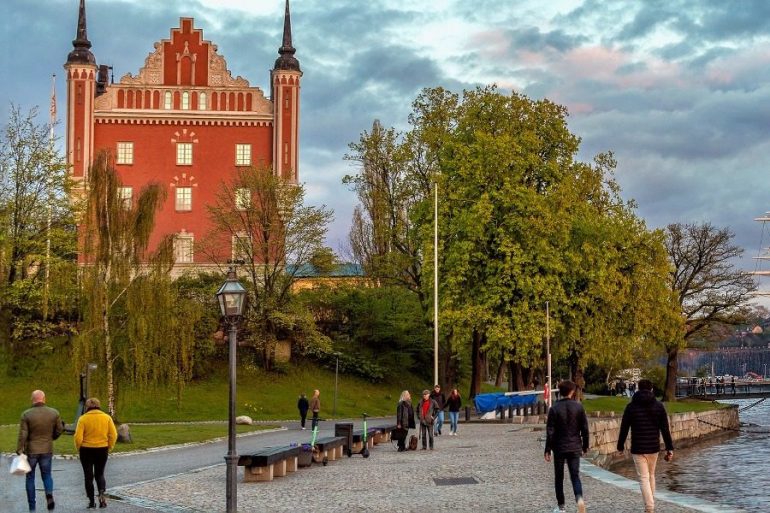Sweden, which has attracted attention with its less rigorous strategy to tackle the coronavirus pandemic, is once again alone, continuing to avoid masks for the time being.
In Stockholm there are very few people wearing masks in supermarkets, offices or means of transport. The Swedish health authorities consider the mask to be ineffective enough and insist on respecting distances and washing hands frequently.
"It simply came to our notice then. "In Sweden, which is a small country, they think they know better than the rest of the world," said Jenny Olson, owner of a small shop in Stockholm that sells a variety of colorful masks.
Contrary to lockdowns imposed in the rest of Europe, the Swedish authorities did not restrict residents and kept cafes, bars, restaurants and businesses open, urging everyone to "take responsibility".
The strategy report is questionable: with 84.000 cases and 5.800 deaths, Sweden is one of the countries most affected by the coronavirus pandemic in terms of its population.
But in contrast to many European countries, where there is an increase in new cases covid-19, such as France, the Netherlands, Germany and Belgium, data for Sweden show a decrease in cases since June.
Confidence in science?
Given this trend, health authorities do not currently see any reason to change strategy.
Epidemiologist Anders Tegnel, a key adviser to the Swedish government on pandemic management, says the effectiveness of his strategy remains to be seen. He points out that anyone wearing a mask can become infected if they do not use it properly.
"There are at least three weighty reports, from the World Health Organization (WHO), the European Health Service and The Lancet magazine - cited by the WHO - that the scientific evidence is weak," Tegnel said.
KK Cheng, an epidemiologist at the Birmingham Institute for Applied Research, denounces an "irresponsible" and "stubborn" logic.
"If everyone who thinks like him is wrong, it costs lives. "But if I'm wrong, what harm will it do?" Asked Cheng, a proponent of mask use.
Tegnel prefers to emphasize the reduction of the number of its cases covid-19 after the improvement of the conditions in the nursing homes, where a large number of deaths were recorded at the beginning of the pandemic, in combination with the extensive application of telework.
"Trying to replace these measures with masks will not work," he said. "Many countries that have adopted the masks are now experiencing a major resurgence in the number of coronavirus cases," Tegnel said in mid-August.
Turn of the Nordic countries
Although Sweden's neighbors have long avoided wearing a mask, they all changed their attitude in the middle of summer.
Finland now recommends the use of a mask in public places, Norway in the capital's public transport, while Denmark has made it mandatory for taxis and public transport.
In June, about 20 doctors and researchers signed an article in the Swedish newspaper Aftonbladet asking Tegnel and the Swedish Public Health Service to review their mask policy.
In the face of this appeal, which has been repeated since then, the Swedish authorities respond that they "have their ears open" to the issue of the mask and that they may adopt it, if necessary.
It remains to be seen if its spread covid-19 in Sweden will continue to be limited.
